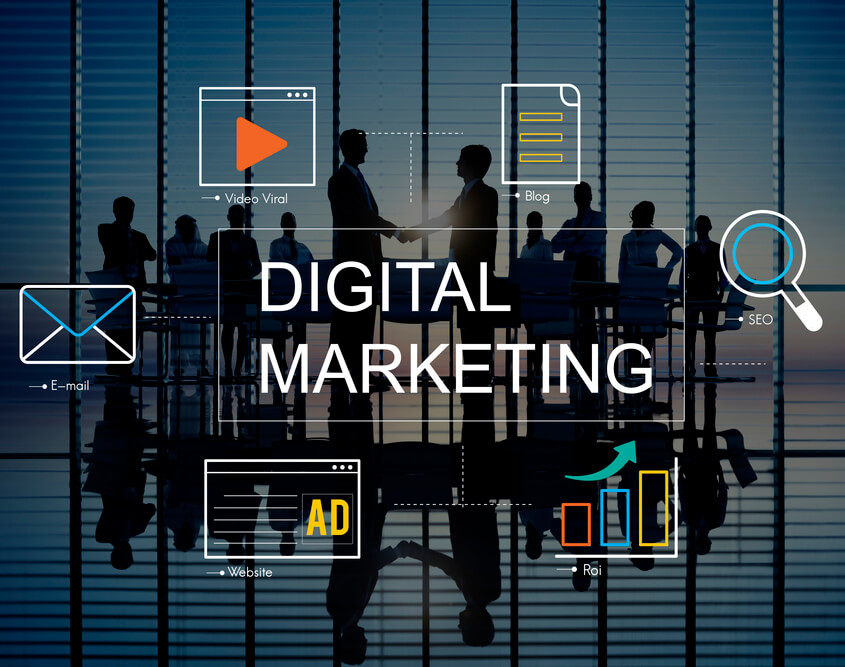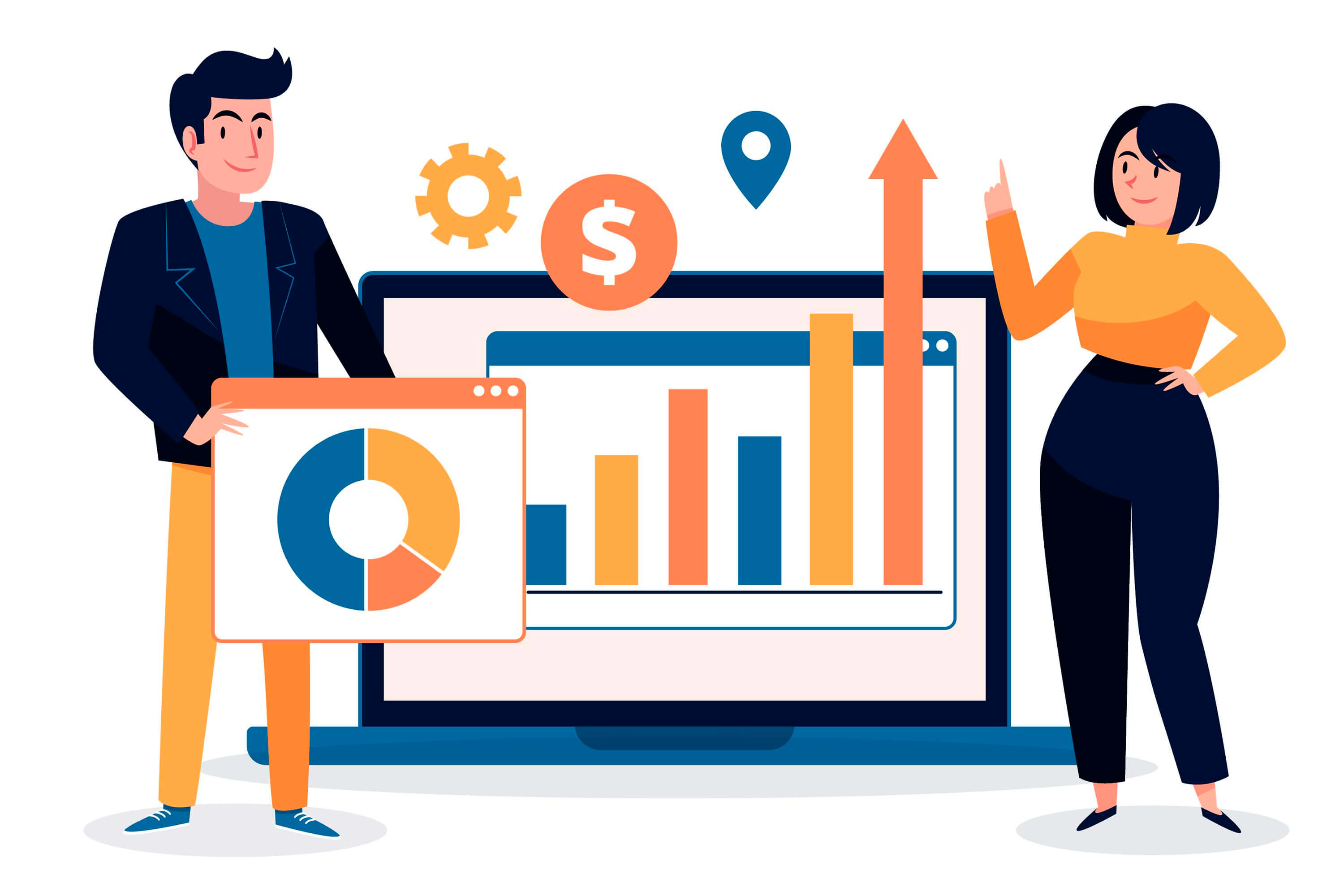As more and more company owners grasp the advantages of investing in digital marketing, many ask whether performance marketing or digital marketing is a perfect choice.
However, these two marketing models are similar but have different focuses for different outcomes. In this blog, we will present you to go for performance marketing and digital marketing and show you the benefit of each. With this blog, you will be able to come to a decision about which tactic is perfect for your business.
Performance Marketing vs Digital Marketing
Performance marketing differs from digital marketing in its advertising tactic. Performance marketing is a result-centric digital marketing plan. Whereas digital marketing is a huge term that promotes the brand, sells the products and links potential clients using various channels. Digital marketing has different payment models, channels and plans. Optimizing these channels and strategies is the spirit of performance marketing.
In contrast to digital marketing, performance marketing has short-term ideas. Metrics associated with performance marketing can be easily measured. Undoubtedly, performance marketing produces the best results in the shortest time. Performance marketing also produces results more quickly than digital marketing.
What is Performance Marketing?

In performance marketing, decisions and budgets are based on measurable results. Performance marketing involves running campaigns, discovering what works, doubling down, and repeating.
It refers almost solely to paid marketing campaigns from a practical view. It is true that other forms of digital marketing, including organic social media and SEO, can drive sales. However, these channels’ response loops are too slow to be true about performance marketing.
PPC advertising, which started with banner ads and Google AdWords (now Google Search Ads), led to the rise of performance marketing. Although performance marketing is often linked with pay-per-result billing, the billing model does not essentially show that something is performance-based. Performance marketing can be considered as long as results are made based on measurable results. Also read ultimate guide to performance marketing.
Metrics to Measure Performance Marketing
1. Conversion rates
These are vital for studying growth makers, like the number of leads generated or downloads of a white paper. But not all conversions are created at all times equally. Sometimes criminals make acquisitions with stolen payment detail to perform theft or even affiliate fraud. The business is usually charged back for sale, so you lose the sale and are also measured chargeback fees. To know your audience’s behaviour, ensure that you measure true, validated conversions.
2. CTR
Click-through rate is an advertisement performance metric that lets you nail what percentage of people click on it. The average CTR for an ad campaign can offer an idea of how good that campaign design, ad copy and offer are at capturing your audience’s alert. An ad campaign cannot generate sales if people do not click on its promotion, so CTR is a vital metric for firms to monitor. You have a greater chance of closing the deal if your click-through rate is higher.
3. CPC (Cost Per Click)
Business owners must understand the cost per click (CPC). This measures how much money an advertisement spends on each click.
An online ad campaign’s CPC can be used to estimate its cost-effectiveness. You can use the cost per click to determine which ads are best at attracting customers, which can be used to optimize future ad campaigns.
4. CPA (Cost Per Acquisition/Action)
Cost per acquisition (CPA) guesses the amount spent to get a new customer from an ad campaign, in which the action is typically a sale.
The Benefits of Performance Marketing
The benefits of running performance marketing campaigns are numerous.
- It focuses on advertising channels that produce real results, usually leads or sales.
- There is greater transparency in ROI with performance marketing. Performance marketing gives firms an understanding of what they’re paying for and enables them to track their investment results. Consequently, the marketing focuses on lower funnel activities that naturally lead to sales.
- Advertisers are only paid when tangible leads or sales are made.
Performance Marketing agency offers Meta ad platform, Google ads, and SEO.
What is digital marketing?

Digital marketing is a form that powers the Internet and digital technology such as smartphones and computers to link with clients. It is a set of practices that relates with clients at every stage of their buying trip.
Digital marketing includes social media, email, advertising, and multimedia messaging spread over the mobile and web. As we all know, more than 60% of the global folks love to stay online. The reason firms slash their traditional marketing budgets is so they can boost their digital ones.
However, data places a vital part in digital marketing. Marketers can gather valuable data by tracking a client journey in real-time view and target by telling content to their factor channel.
Metrics to Measure Digital Marketing
1. Bounce Rate
The bounce rate is the percentage of visitors who visit your website and directly leave without taking any action. Poor campaign targeting, outside traffic sources, weak landing pages, and other factors can donate to a high bounce rate in your digital marketing.
2. Time on Site
This reflects your website visitors’ level of interest and engagement due to interactions per visit. Since visitors who spend a lot of time on your site find useful details, this is a good indicator of how well your site performs. Your longest-staying visitors are also more likely to become your most loyal clients. Knowing where they spend their time relating with your website will help you optimize content for them.
3. Mobile Traffic
Mobile devices and apps are liable for more than half of online digital traffic. Because of that trend, it is highly vital to the tracker of mobile users who access your website each month. By looking at your mobile traffic metrics, learn how many people access your site using mobile devices. Observe their time on the site and their probe depth on a mobile device. Utilize those insights to improve the user experience for mobile users by comparing them to your non-mobile traffic.
The Benefits of Digital Marketing
- With digital marketing, you can scale and lower your CPA, which is the main benefit. A subdivision of digital marketing is performance marketing.
- In digital marketing, techniques (like demand generation) are used to teach options without asking for anything in return.
- Thanks to its scalability, a trade can reach a large audience through digital marketing.
Final Words
This blog has explained the differences between digital marketing and performance marketing. You can pick the one that suits your needs. But picking performance marketing is a wise idea for firms seeking efficient marketing plans with a results-driven tactic.



